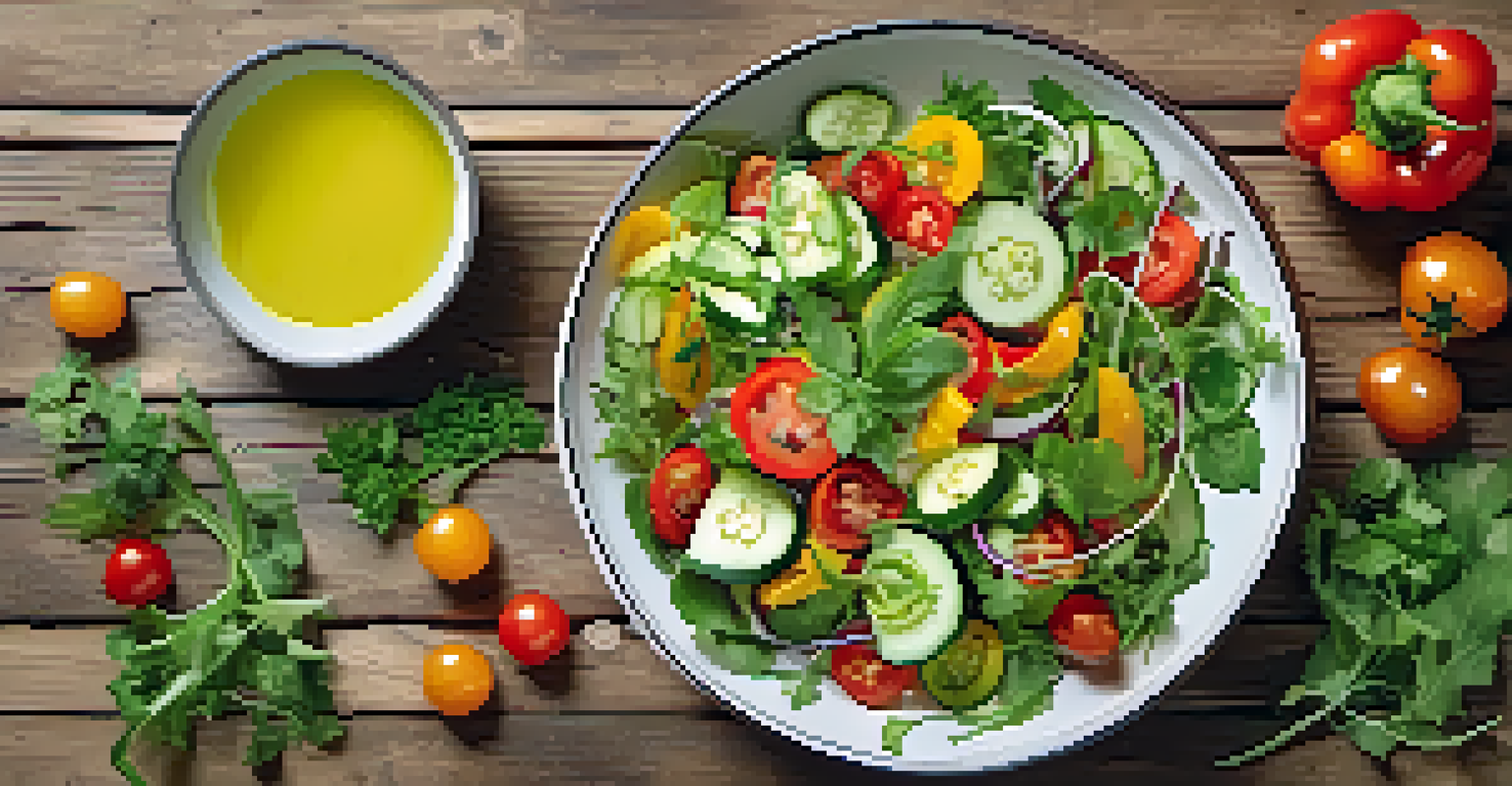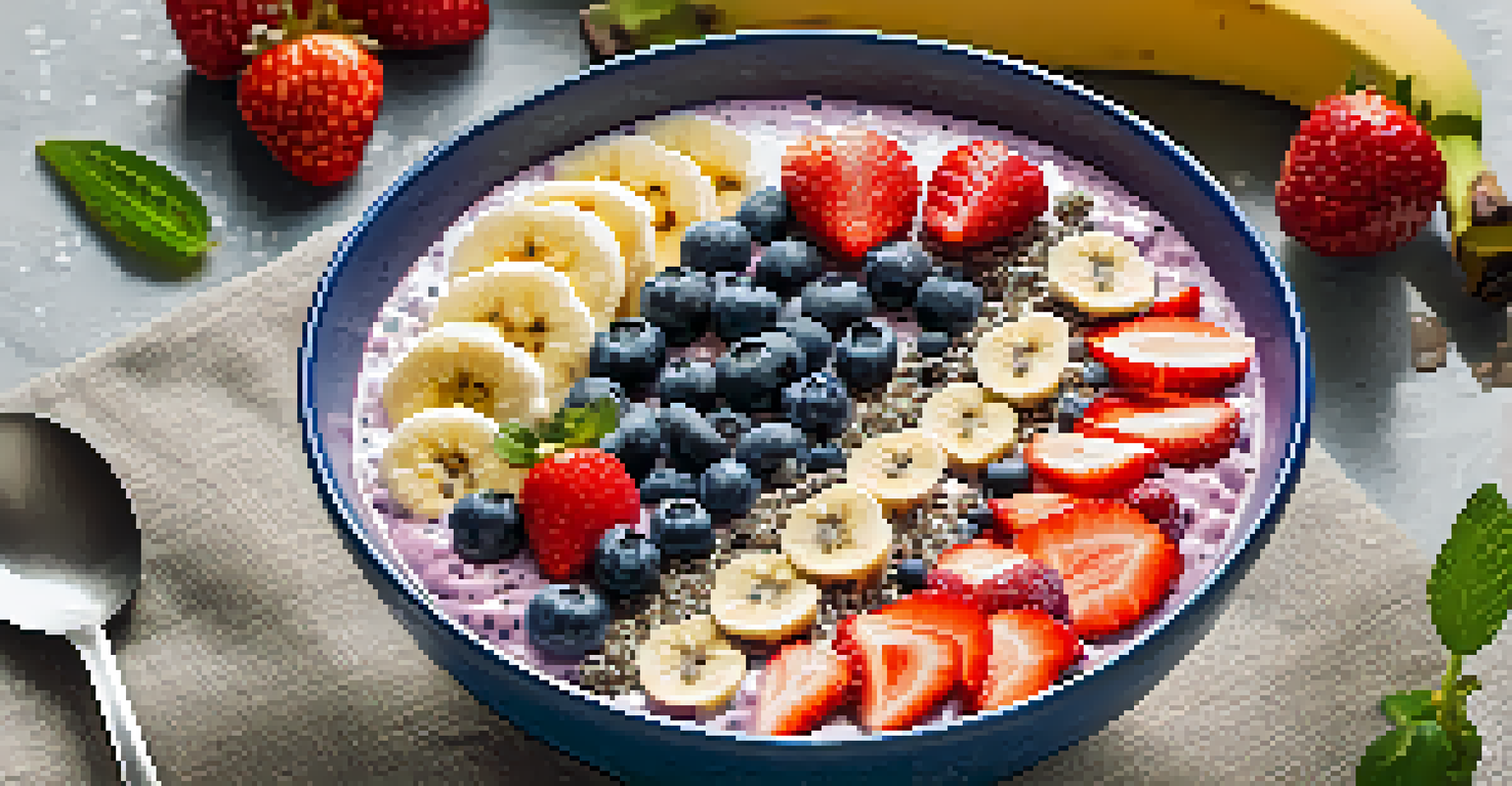Health Benefits of Raw Vegetarian Eating: A Comprehensive Guide

What is Raw Vegetarian Eating and Its Core Principles?
Raw vegetarian eating is a dietary approach that emphasizes consuming unprocessed, uncooked plant-based foods. This often includes fruits, vegetables, nuts, seeds, and sprouted grains. The core principle is that cooking food can destroy essential nutrients and enzymes, which are vital for optimal health.
Let food be thy medicine and medicine be thy food.
Many raw vegetarians believe that by eating foods in their natural state, they can maximize their nutrient intake. This approach not only promotes health but also encourages a closer connection to the food we consume. It’s about embracing whole foods that are as close to their original form as possible.
In addition to the health aspect, raw vegetarian eating often aligns with ethical and environmental values. Many individuals choose this lifestyle not only for personal health benefits but also to support animal welfare and reduce their carbon footprint.
Nutritional Advantages of Raw Vegetarian Foods
One of the significant benefits of raw vegetarian eating is the abundance of vitamins, minerals, and antioxidants found in fresh fruits and vegetables. These nutrients play essential roles in various bodily functions, from boosting immunity to supporting skin health. Eating raw allows you to consume these nutrients in their most potent forms.

Furthermore, raw foods are typically high in fiber, which aids digestion and promotes a healthy gut. This can lead to improved metabolic health and a reduced risk of chronic diseases. For example, a diet rich in fiber can help maintain healthy cholesterol levels and support heart health.
Nutritional Power of Raw Foods
Raw vegetarian eating maximizes nutrient intake from fresh, unprocessed plant-based foods, promoting overall health.
Additionally, many raw vegetarian foods are low in calories but high in volume, making them ideal for weight management. You can enjoy large portions of salads or smoothies without feeling guilty about calorie intake, which is a win-win for those looking to maintain or lose weight.
Boosting Energy Levels with Raw Foods
Many people report feeling more energetic after switching to a raw vegetarian diet. This boost in energy often comes from the high levels of vitamins and minerals that help the body function optimally. Foods like bananas, nuts, and leafy greens are particularly noted for their energy-boosting properties.
The food you eat can be either the safest and most powerful form of medicine or the slowest form of poison.
In contrast to processed foods that can lead to energy crashes, raw vegetarian foods provide a steady source of energy. Because these foods are rich in nutrients and hydrating, they can help sustain energy levels throughout the day, preventing the lethargy that often follows heavy meals.
Moreover, incorporating smoothies and fresh juices into your diet can deliver an instant energy kick. These drinks are not only refreshing but also packed with nutrients that can help you feel revitalized and ready to tackle your day.
Promoting Digestive Health Through Raw Vegetables
Raw vegetarian eating can significantly improve digestive health due to its high fiber content. Foods like raw vegetables and fruits are excellent sources of dietary fiber, which helps to keep the digestive system running smoothly. This leads to regular bowel movements and can reduce the risk of constipation.
Moreover, raw foods often contain natural enzymes that aid in digestion. Cooking can destroy these enzymes, so consuming raw foods allows you to benefit from these natural digestive aids. For example, pineapple and papaya contain enzymes that can help break down proteins.
Boosting Energy Naturally
Many people experience increased energy levels from raw vegetarian foods, which provide steady nutrition without crashes.
A healthy gut is essential for overall well-being, as it can influence everything from mood to immune health. By focusing on raw vegetarian foods, you’re not only promoting better digestion but also contributing to a healthier gut microbiome.
Weight Management Benefits of a Raw Vegetarian Diet
Adopting a raw vegetarian diet can be an effective strategy for weight management. Since raw foods are generally low in calories but high in volume, they allow you to eat satisfying portions without consuming excess calories. This makes it easier to maintain a healthy weight or even lose weight if that’s your goal.
The emphasis on whole, unprocessed foods means you’re less likely to consume added sugars and unhealthy fats, which are often found in processed snacks and meals. Instead, you’ll be filling up on nutrient-dense options that nourish your body while keeping you full.
Additionally, the fiber in raw foods helps you feel satisfied longer, reducing the likelihood of overeating. By focusing on foods that promote fullness and provide essential nutrients, you can create a balanced approach to weight management.
Enhancing Skin Health with a Raw Diet
Many raw vegetarians notice improvements in their skin health after embracing this lifestyle. The abundance of vitamins, antioxidants, and hydration from raw fruits and vegetables can lead to a clearer complexion. For instance, foods high in vitamin C, like oranges and strawberries, are known for their skin-boosting benefits.
Moreover, the high water content in many raw foods helps keep your skin hydrated, contributing to a youthful appearance. Proper hydration is crucial for maintaining skin elasticity and preventing dryness or flakiness, which can be common with processed diets.
Digestive Health Benefits
The high fiber and natural enzymes in raw vegetarian foods support digestive health and contribute to a healthier gut.
Additionally, avoiding processed foods can reduce the intake of harmful additives that may negatively impact skin health. By focusing on clean, whole foods, you’re likely to see not only better skin but also an overall improvement in your appearance and well-being.
Potential Challenges and How to Overcome Them
While there are numerous benefits to raw vegetarian eating, it’s essential to acknowledge the potential challenges. One common concern is obtaining adequate nutrients, particularly protein and certain vitamins like B12, which are primarily found in animal products. Planning balanced meals and incorporating a variety of foods can help address these concerns.
Additionally, some may find it difficult to adjust to the texture and taste of raw foods at first. Gradually introducing raw meals and experimenting with different recipes can make the transition smoother. For example, try blending smoothies or creating raw veggie dips to make raw eating more enjoyable.

Lastly, social situations can pose challenges for raw vegetarians, especially when dining out. Preparing snacks or meals ahead of time can ensure you have options available. Remember, it’s about finding a balance that works for you while embracing the many health benefits of a raw vegetarian diet.